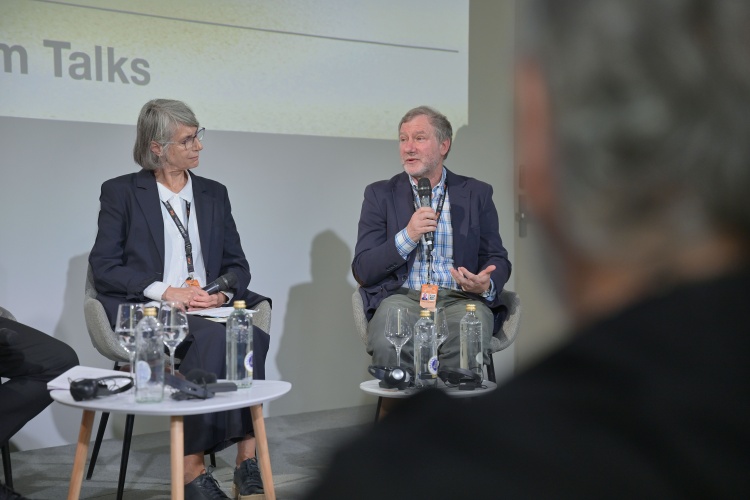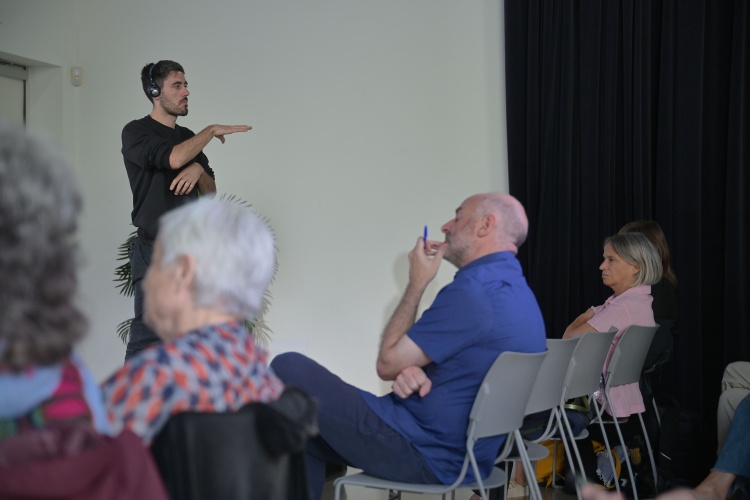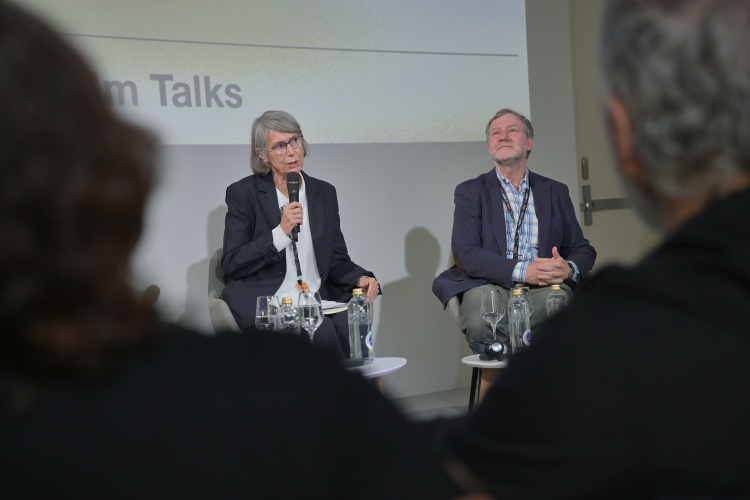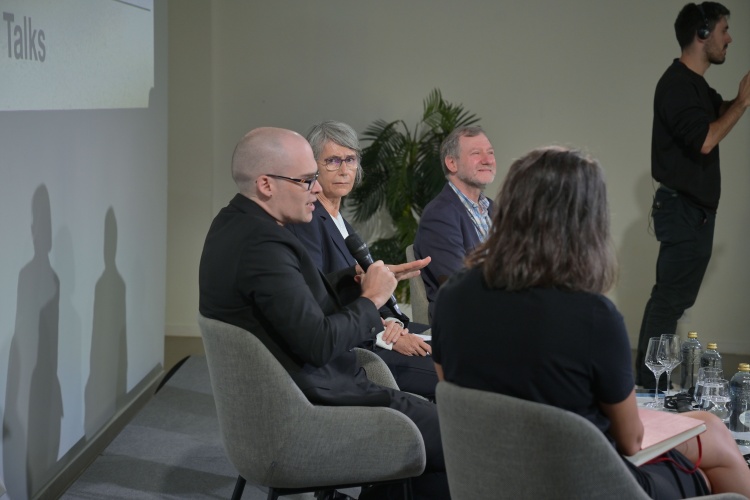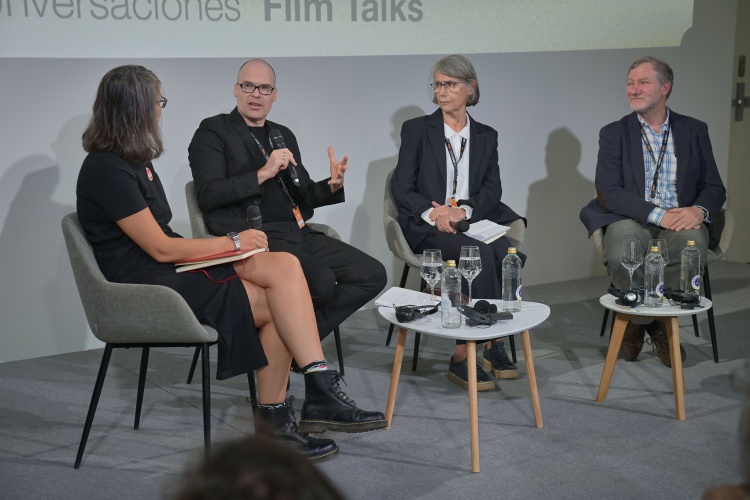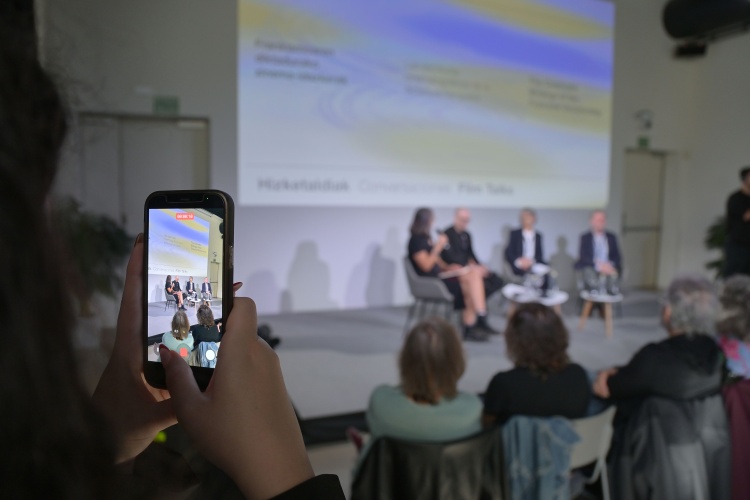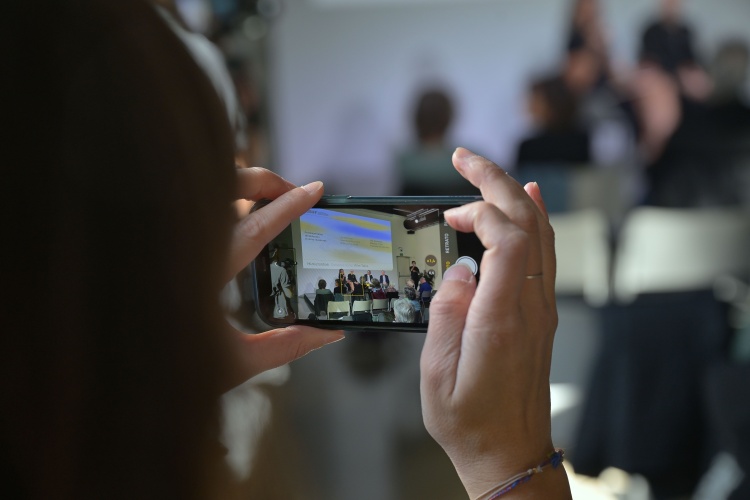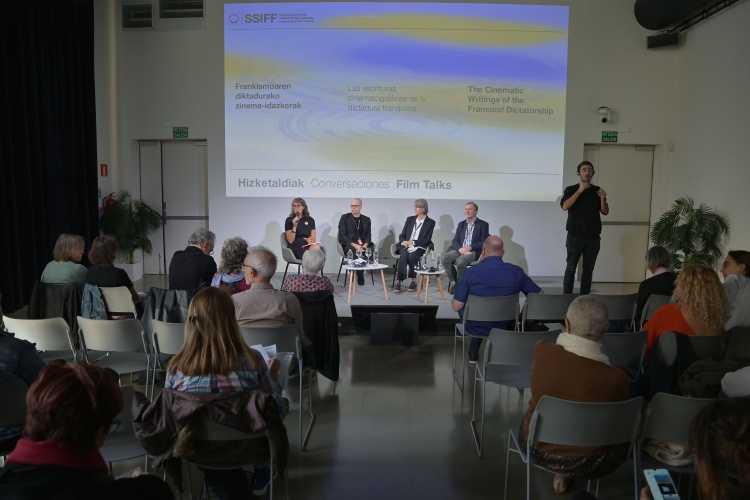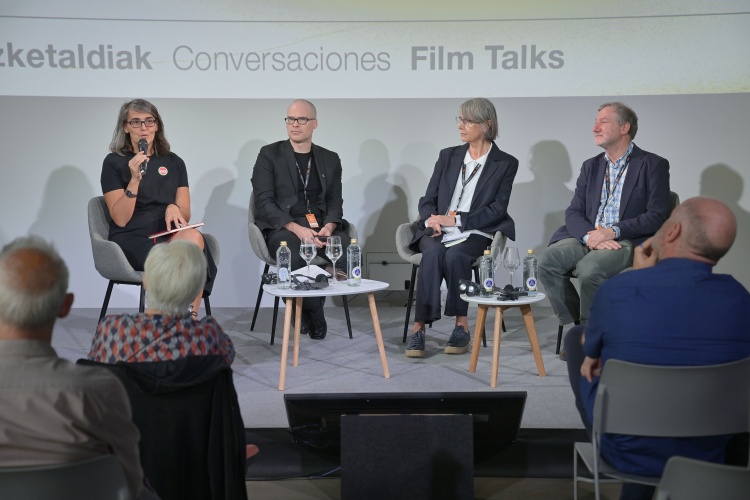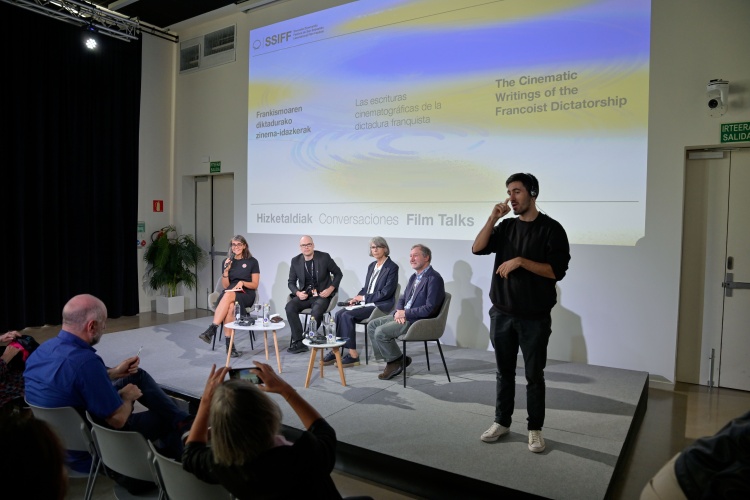The Cinematic Writings of the Francoist Dictatorship
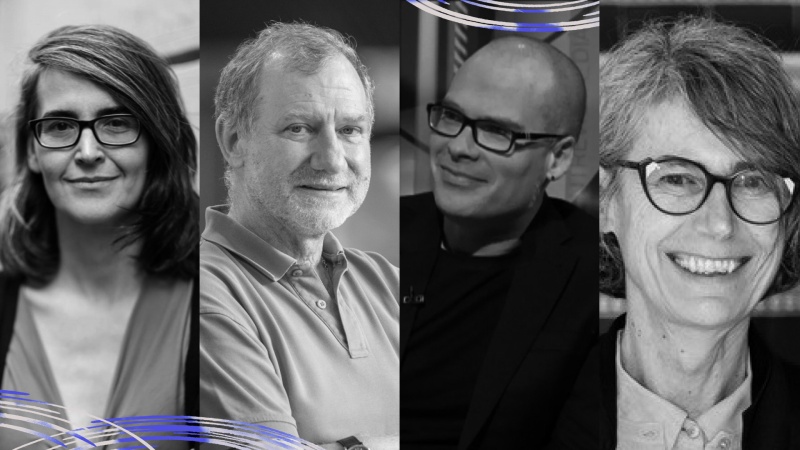
Co-organized with the Commissioner for the Celebration of the 50th Anniversary of Spain’s Freedom, this conversation is part of the activities within the cycle “Youth, Cinema, Memory and Democracy”.
How has cinema portrayed the Franco dictatorship? How have fiction films and documentaries influenced our image of Francoism? This conversation focuses on historical films, yes, but it does so from the perspective of the present: it seeks to explore how Spanish society has imagined and dealt with its past through cinema, and how it continues to do so today.
The discussion will address how censorship, propaganda, and cultural policies shaped audiovisual discourses, as well as the aesthetic and narrative strategies some filmmakers used to question, either subtly or explicitly, the values imposed by the dictatorship. It will also explore the cinematographic memory of Francoism after Franco’s death, and how film discourses on the dictatorship have evolved over the past decades.
The session will be moderated by Carmina Gustrán, Commissioner of the commemoration, and will feature Valeria Camporesi, Director of the Spanish Film Archive and renowned film historian; Santiago de Pablo, Professor of Contemporary History at the University of the Basque Country and specialist in the relationship between cinema and history; and Nicolás Sesma, professor and historian, author of Ni una, ni grande, ni libre, an account of the Franco dictatorship with abundant cinematographic references.
Carmina Gustrán is the commissioner overseeing the celebration of 50 years of Spain's freedom. She holds a Ph.D. in contemporary history and a master's degree in cultural management and policy. She is a postdoctoral researcher at the University of Zaragoza. She is the author of Tinieblas: El Franquismo en el Cine Español (1975-2000) (Darkness: Francoism in Spanish Cinema (1975–2000), published by Marcial Pons in 2022. She has also worked at Newcastle University, the University of Leeds, the Ministry of Culture, the La Caixa-Caixaforum Zaragoza Foundation, the Conde Duque Center for Contemporary Culture, and Madrid Destino Cultura, Turismo y Negocio, among others.
Santiago de Pablo is a professor of contemporary history at the University of the Basque Country (UPV/EHU). He is the author of numerous articles and books on history, cinema, and the historical evolution of the Basque Country in the 20th century. During the 2009–10 academic year, he was a visiting researcher at the Center for Basque Studies at the University of Nevada, Reno. His books include Cien años de cine en el País Vasco (100 Years of Cinema in the Basque Country, 1996) and Tierra sin paz. Civil War, Cinema, and Propaganda in the Basque Country (2006); Creators of Shadows: ETA and Basque Nationalism Through Cinema (2017), which has also been published in English, and Witness for the Prosecution: The History of ETA and Its Victims on Television (2019). He has worked as a screenwriter and consultant on several historical documentaries for film and television, including the series El Gobierno Vasco en el Exilio (The Basque Government in Exile, 2014); Alava, una luz interior (Álava, an Inner Light, 2017); and the feature film Una esvástica sobre el Bidasoa (A Swastika over the Bidasoa), which premiered at the 2013 San Sebastián International Film Festival. He is a member of the Spanish Academy of Motion Picture Arts and Sciences.
Nicolás Sesma (Vitoria, 1977) is a professor at the University of Grenoble Alpes and a scientific member of the Casa de Velázquez (École des hautes études hispaniques et ibériques, EHEHI). A graduate of the University of Zaragoza (1999), he received his doctorate from the European University Institute in Florence in 2009. His doctoral thesis, which focused on the Institute of Political Studies, won the Miguel Artola Prize in 2010. He was a fellow at the Residencia de Estudiantes and the Ortega y Gasset Foundation. Additionally, he was a visiting researcher at the University of Wisconsin–Madison and a postdoctoral researcher at Columbia University in New York. Sesma is the author of Ni una, ni grande, ni libre. La dictadura franquista (Crítica, Barcelona, 2024) (Juan José Carreras Prize, 2025); Antología de la Revista de Estudios Políticos (CEPC, Madrid, 2009); and Biografía política de José Larraz (Biblioteca Aragonesa de Cultura, Zaragoza, 2006). He is also the co-author of Una juventud en tiempo de dictadura. El Servicio Universitario del Trabajo (SUT), 1950–1969 (Libros de la Catarata, Madrid, 2021). He is a regular contributor to various media outlets.
Valeria Camporesi (Bologna, 1957)
Professor of Film and Visual Culture History and Theory at the Department of Art History and Theory, Universidad Autónoma de Madrid. Since January 2023, she has been Director of the Spanish Film Archive (Filmoteca Española).
Her main research interests include: national culture and audiovisual media; the relationship between cinema and history, cinema and visual culture; and the transnational aspects of European film history.
Her recent publications include: Las películas del art cinema y sus públicos. El cine español en la segunda mitad de los años setenta (Madrid, Cátedra, 2023); Pensar la historia del cine (Madrid, Cátedra, 2014); Il cinema spagnolo attraverso i film (Rome, Carocci, 2014); “The ‘strange objects’ of the collection of the Museo Nacional – Centro de Arte Reina Sofía: Arrebato (I. Zulueta, 1979) and the construction of the ‘other’ Spanish cinema,” Anales de Historia del Arte, 29 (2019), pp. 229-244 (with J. Fernández); “Making sense of genre: the ‘quality thriller’ as a vehicle to revise a controversial past in recent Spanish cinema,” Studies in European Cinema, 15, 2-3, 198-214.

